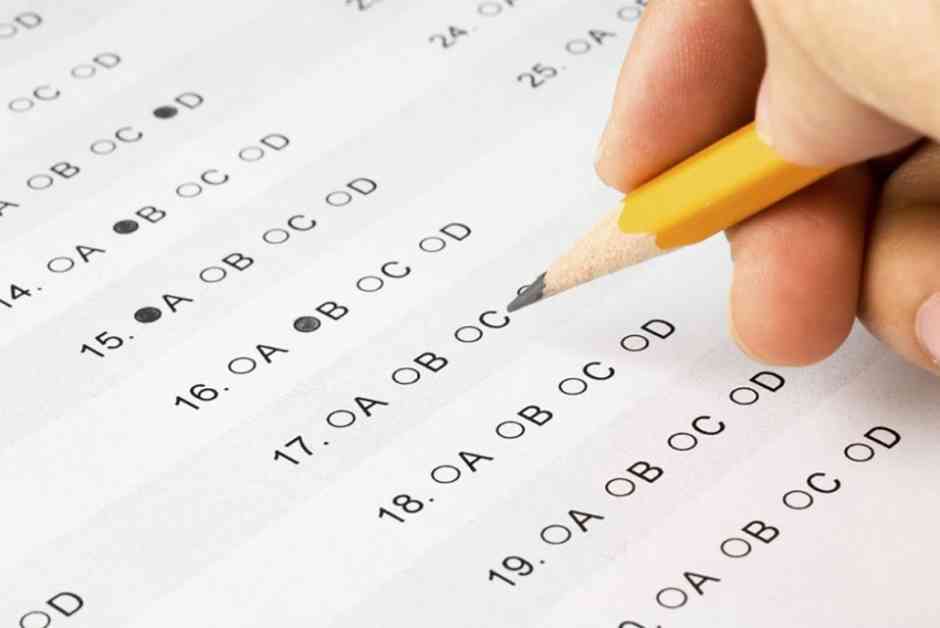Ten Los Angeles Unified School District (LAUSD) community schools are set to embark on a new journey in the 2025-26 academic year by piloting alternative approaches to assessments. This initiative comes as part of the Supporting Meaningful Teaching and Learning in the LAUSD Community Schools Initiative, which aims to shift the focus away from standardized testing and towards more innovative and authentic methods of evaluating student progress.
The decision to allow these schools to opt out of standardized tests, other than those mandated by state and federal governments, was made by the district school board in a 4-3 vote. LAUSD school board President Jackie Goldberg, along with board members Rocio Rivas and Kelly Gonez, authored the policy in response to what they see as a detrimental overemphasis on standardized testing in education.
Goldberg expressed her concerns about how corporate entities have influenced the educational system, pushing schools to prioritize test scores over nurturing a love for learning. She emphasized that standardized assessments are not the only way to measure students’ learning and highlighted the importance of continuous assessment through class discussions and projects.
Once the 10 community schools establish new methods of assessment that are deemed “innovative, authentic, rigorous, and relevant,” they will no longer be required to administer the district’s iReady diagnostic tests. These tests have been criticized by teachers for consuming valuable instructional time and adding to students’ stress and anxiety levels.
Rivas echoed these sentiments, sharing messages from students in the district who expressed relief at the prospect of reducing the number of standardized tests. Students highlighted the redundancy of taking multiple tests throughout the year and the negative impact it has on their mental well-being.
While the initiative received support from some board members, including Goldberg, Rivas, and Gonez, there were dissenting voices. Board member George McKenna raised concerns about how students would learn without the motivation of working towards tests. He also expressed skepticism about the proper implementation of the policy.
Despite some opposition, the resolution passed, requiring LAUSD to establish a Supporting Meaningful Teaching and Learning Initiative that community schools can apply to be part of. Schools in the initiative must select a community school lead teacher who will receive additional professional development and support from various organizations, including the UCLA Center for Community Schooling.
The 10 schools participating in the initiative will be expected to adapt their instructional programs to incorporate culturally relevant curriculum, community- and project-based learning, and civic engagement. This holistic approach aims to provide a more well-rounded education that goes beyond traditional methods of assessment.
As the initiative moves forward, board members are hopeful that it will pave the way for a more joyful and transformative education experience for students. They anticipate innovative ideas from teachers and a full realization of the community schools model, which emphasizes collaboration and community involvement in the learning process.
Challenges and Opportunities in Alternative Assessments
The shift towards alternative assessments poses both challenges and opportunities for the 10 LAUSD community schools participating in the pilot program. While standardized tests have long been the norm for measuring student achievement, the move towards more innovative and authentic assessment methods opens up a world of possibilities for educators and students alike.
One of the main challenges schools may face is the need to develop new assessment tools and strategies that align with the goals of the initiative. Teachers will have to think creatively about how to evaluate student learning in a way that goes beyond traditional tests and quizzes. This may require additional training and support to ensure that assessments are effective and meaningful.
On the other hand, the shift towards alternative assessments presents an opportunity for schools to tailor their evaluation methods to better reflect the diverse needs and strengths of their students. By incorporating project-based learning, class discussions, and other interactive activities into the assessment process, schools can gain a more comprehensive understanding of student progress and achievement.
Impact on Student Well-being
The decision to opt out of standardized testing in favor of alternative assessments has the potential to have a positive impact on student well-being. By reducing the number of high-stakes tests that students are required to take, schools can alleviate some of the stress and anxiety that often accompanies standardized testing.
Research has shown that excessive testing can have detrimental effects on students’ mental health, leading to increased levels of stress, anxiety, and even depression. By shifting towards more holistic assessment methods that focus on student growth and development, schools can create a more supportive and nurturing learning environment for their students.
Additionally, alternative assessments can provide students with a more engaging and meaningful learning experience. By incorporating hands-on projects, collaborative activities, and real-world applications into the assessment process, schools can help students connect their learning to the world around them and develop valuable skills that go beyond test scores.
Looking Towards the Future
As the 10 LAUSD community schools begin their journey towards implementing alternative assessments, the education community is watching closely to see how this innovative approach will unfold. The success of the pilot program could have far-reaching implications for the future of education, influencing how schools across the country approach assessment and evaluation.
By prioritizing meaningful teaching and learning over standardized testing, the LAUSD initiative is paving the way for a more student-centered and holistic approach to education. As schools work to develop new assessment methods and strategies, they are not only shaping the educational experience for their own students but also contributing to a larger conversation about the role of assessment in modern education.
As the initiative progresses, educators, policymakers, and parents alike will be looking for evidence of its impact on student achievement, engagement, and well-being. By embracing alternative assessments and moving away from the reliance on standardized testing, LAUSD is taking a bold step towards reimagining the future of education and creating a more empowering and inclusive learning environment for all students.




















